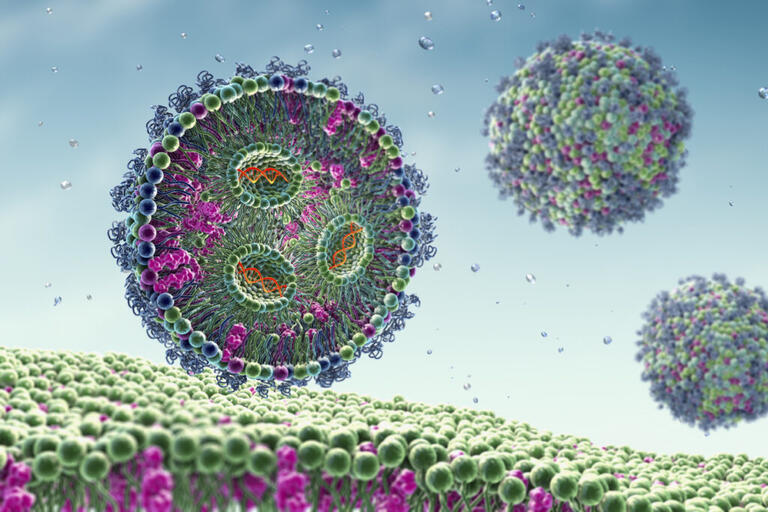UNLV Researchers Advance Organ-Specific Drug Delivery with Innovative mRNA Platform

Revolutionizing Targeted Medicine: Organ-Specific Drug Delivery at UNLV
In recent years, the focus of medical research has increasingly shifted toward precision medicine—treatments tailored to target specific organs or tissues. The University of Nevada, Las Vegas (UNLV) has positioned itself at the forefront of this movement through groundbreaking research in organ-specific drug delivery, particularly leveraging the potential of messenger RNA (mRNA) therapies. This development promises to redefine how we approach treatment for complex diseases like diabetes, pancreatic cancer, and other organ-centered conditions.
Understanding Organ-Specific Drug Delivery and Its Significance
Traditional drug therapies often face the challenge of systemic distribution, meaning that medications circulate throughout the body and only a small fraction reaches the intended target. This nonspecific distribution can lead to side effects, reduced efficacy, and increased treatment costs. Organ-specific drug delivery aims to overcome these limitations by directing therapeutic agents precisely where they are needed, enhancing treatment effectiveness while minimizing adverse reactions.
At the core of this innovative approach are nanotechnology and advanced delivery systems, which can navigate the body’s complex biological pathways. UNLV’s recent advancements focus on developing nanoparticle platforms capable of high-precision delivery of mRNA molecules—a class of therapies that instruct cells to produce specific proteins, offering promising applications in treating diseases like diabetes, cancers, and neurodegenerative conditions.
UNLV’s Breakthrough: Targeted mRNA Delivery to the Pancreas
One of the most notable achievements at UNLV involves the development of a novel platform called ENDO (EndogenousTargeting Lipid Nanoparticles). This platform is designed to selectively deliver mRNA directly to the pancreas, an organ critical for insulin production and glucose regulation. Dr. Chandrabali Bhattacharya, a lead researcher in the study, explains that this technology marks the first of its kind to achieve a 99% selectivity rate via intravenous injection—a breakthrough in precision medicine.
Historically, delivering drugs specifically to the pancreas has been immensely challenging due to the organ’s inaccessibility and the limitations of existing delivery methods. UNLV’s innovative nanoparticle design leverages the body’s own biological pathways, particularly the Vitamin D receptors on cell surfaces, to navigate and reach the target tissue without significant off-target effects. This targeted approach significantly reduces the required drug dosage and limits immune responses, making it especially promising for chronic conditions such as diabetes.
The Role of Vitamin D Receptors in Nanoparticle Targeting
The research team discovered that nanoparticles could be engineered to interact with Vitamin D receptors widely distributed throughout the body. By designing nanoparticle surfaces to engage these receptors, the delivery system effectively ‘hitches a ride’ to the pancreas, where Vitamin D plays a regulatory role. This mechanism opens new doors for delivering a wide range of therapies directly to specific organs, including the brain, heart, and other tissues that are traditionally hard to target.
Implications for Diabetes and Pancreatic Diseases
Currently, managing diabetes involves lifelong insulin injections or medication, which can be invasive and costly. UNLV’s mRNA platform holds the potential to revolutionize this management by slowing or even reversing the disease process through targeted regenerative therapies. The precise delivery of mRNA to pancreatic cells could stimulate the organ to restore insulin production or reduce the progression of disease, offering a more sustainable and less burdensome treatment option.
Moreover, similar techniques could be applied to treat pancreatic cancers, which are notoriously difficult to target with conventional therapies. Targeted nanoparticle delivery systems could improve drug accumulation within tumor sites, reducing systemic toxicity and improving patient outcomes.
Beyond the Pancreas: Expanding Organ-Specific Therapies
Encouraged by their success with pancreatic targeting, UNLV researchers are extending their efforts to develop delivery systems for other vital organs such as the brain and heart. These areas present significant barriers to effective treatment due to the blood-brain barrier and the heart’s dynamic environment. Advances in nanotechnology and a deeper understanding of endogenous pathways are crucial steps toward overcoming these challenges.
For example, applying similar nanoparticle strategies to neurodegenerative diseases like Alzheimer’s could facilitate direct delivery of genetic or protein-based therapies to affected brain regions, potentially offering new hope for conditions currently lacking effective treatments.
Future Directions: Commercialization and Broader Impact
Dr. Bhattacharya and colleagues are working actively with UNLV’s Office of Economic Development to translate their laboratory discoveries into commercial applications. The goal is to develop next-generation drug delivery platforms that can be used widely across the healthcare industry, reducing side effects, increasing efficacy, and lowering treatment costs.
This research also sets a blueprint for future innovations in biopharmaceuticals. Precision nanomedicine, enabled by an understanding of endogenous pathways, could pave the way for personalized treatments tailored precisely to each patient’s unique biological landscape.
Conclusion: Transforming Medicine with Organ-Specific Delivery Systems
The work conducted at UNLV exemplifies the significant advancements achievable when cutting-edge nanotechnology intersects with molecular biology and medicine. By focusing on organ-specific drug delivery, researchers are addressing longstanding challenges in treatment efficacy and safety, especially for chronic diseases like diabetes and cancer.
As this technology matures, it promises to bring more effective, affordable, and minimally invasive therapies to patients worldwide. For those interested in the future of medical research and innovations at UNLV, staying informed about these developments offers a glimpse into a new era of personalized and precise healthcare.
To learn more about UNLV’s research programs or consider involvement, explore the university’s academic offerings or contact their research departments. Technology like this highlights the importance of supporting public research institutions dedicated to advancing health and medical science.
Interested in collaborative opportunities or further developments? Discover if UNLV’s research initiatives are right for your organization or project by reaching out to their experts in biochemistry and nanotechnology.

